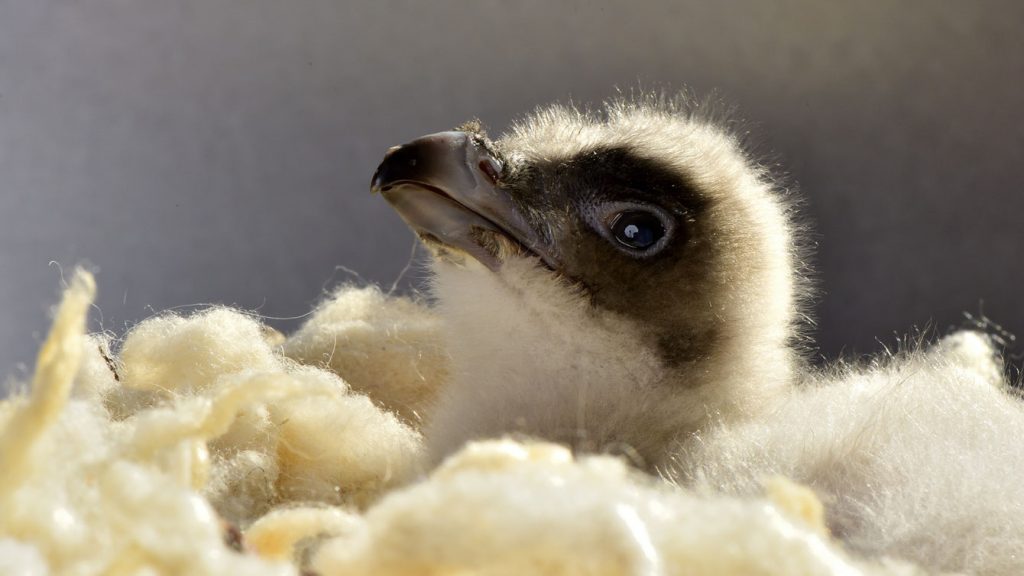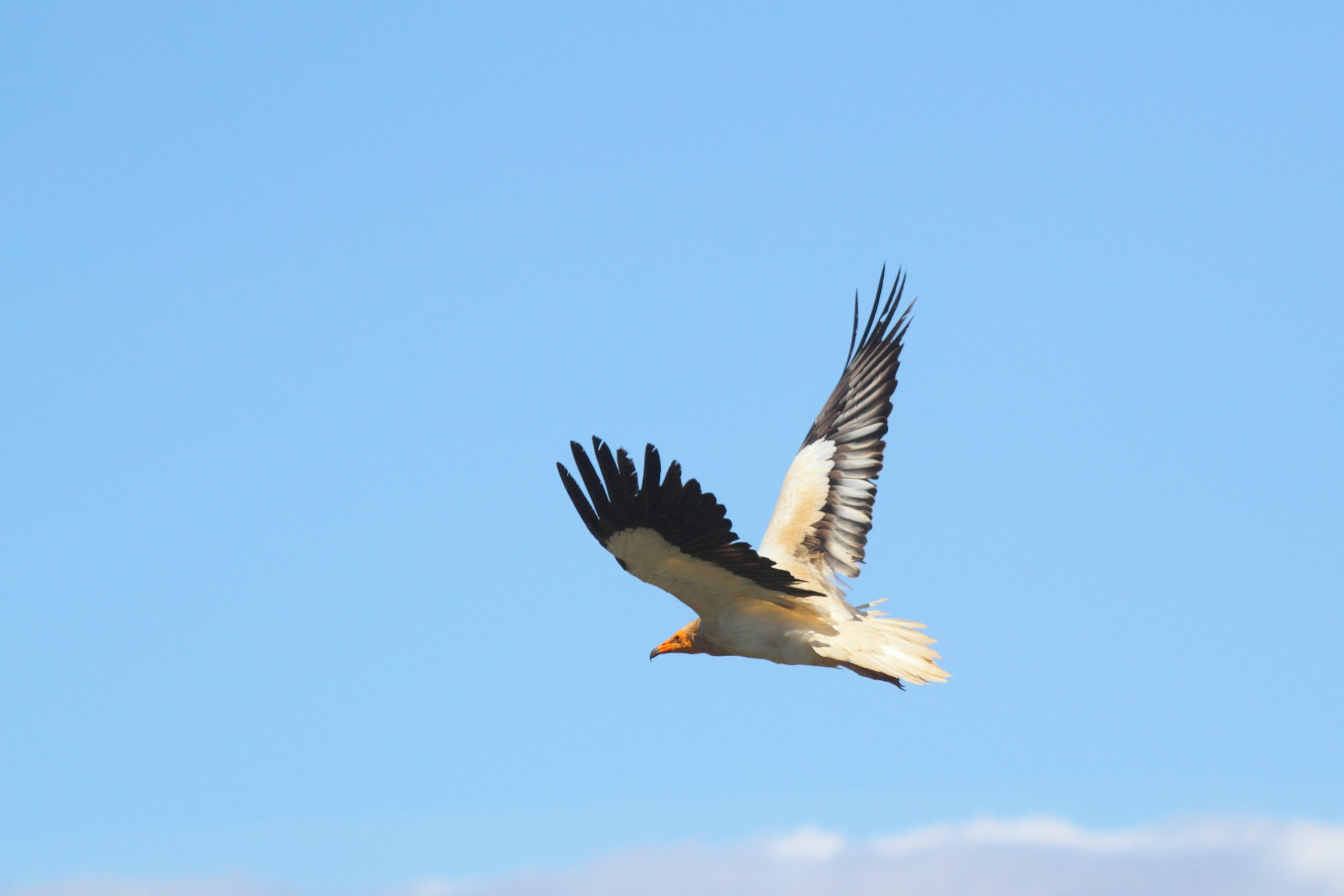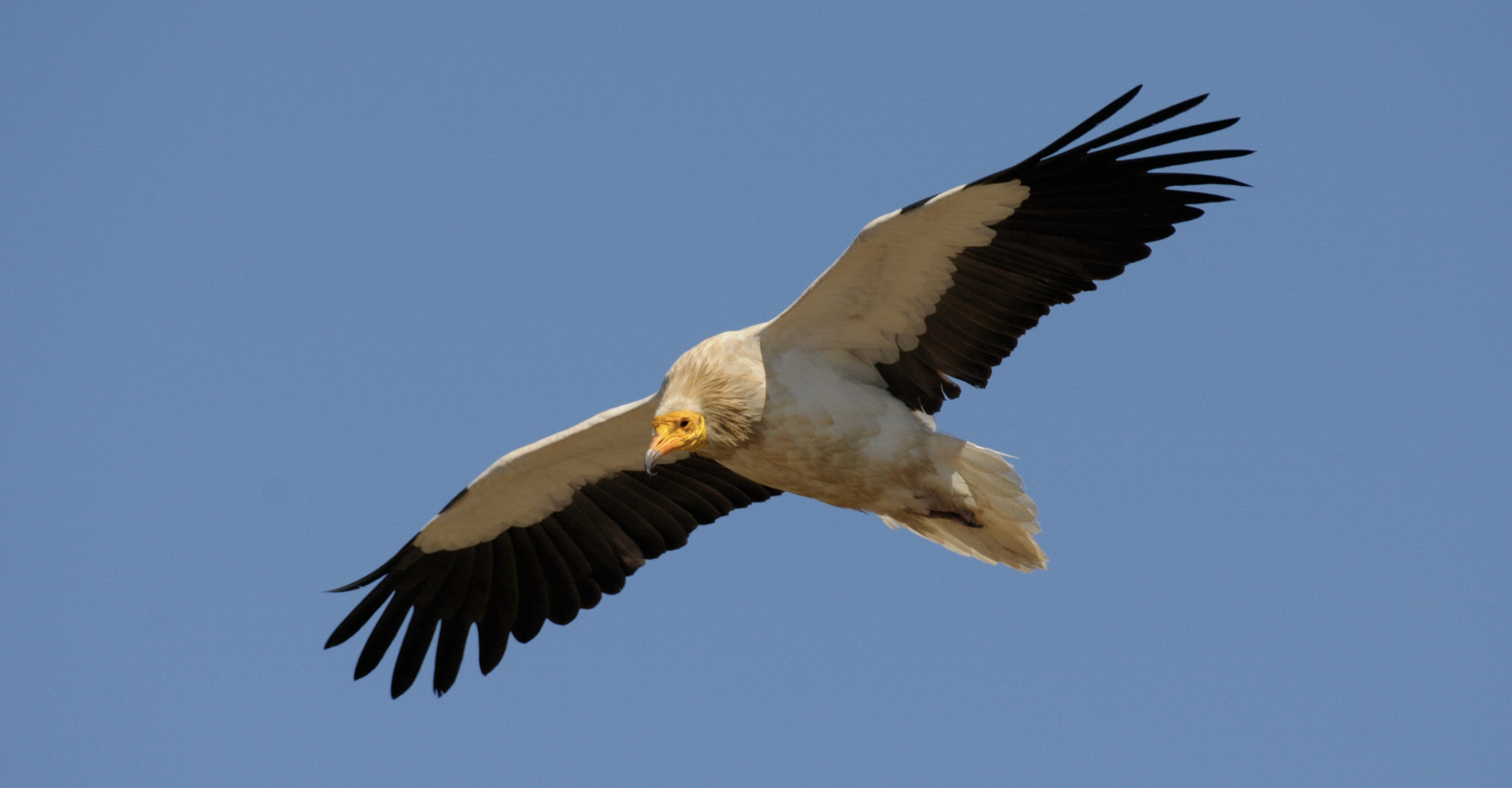Ana Sanz-Aguilar and co-authors have research the effect of age and sex on recruitment, breeding success and adult survival of the globally endangered Egyptian vulture in North-Central Spain during 31 years. Their results were recently published in the journal Scientific Reports, and show that the mean age of first reproduction was 7-yrs for both sexes, but females showed tendency for earlier breeding. They also found an age-related improvement in breeding success at the population level. Perhaps most surprisingly, they found that old males (≥8 yrs) showed a higher survival than both young males (≤7 yrs) and females (no age effects for females on survival).
The authors suggest that sex and age-related differences in foraging strategies and susceptibility to toxics could be behind the relatively low survival of females and young males. The survival of female Egyptian vultures in the study population was alarmingly low in comparison with the survival rates estimated for adults breeding in other European populations – this could lead to male-skewed adult sex-ratios. Why these is so? It is a mystery yet, as it seems that both males and females Egyptian vultures have similar home ranges both at European breeding and wintering quarters in the African Sahel regions, although “it may exist differential patterns of exploitation of space in terms of microhabitat between sexes that ultimately may be behind the observed patterns and that need to be examined in detail” said JA Donázar, one of the main authors of this long term monitoring project. One possibility is that females may more frequently exploit predictable food sources, such as dumps and supplementary feeding stations, than males, and be more exposed to associated risks (e.g. poisons, pathogens and/or toxic veterinary pharmaceutical).
These results strengthen the importance of long term monitoring programs in long lived species conservation and particularly the significance of considering the age and the sex when studying life histories, even among monogamous species in which both sexes exhibit similar parental care.
You can download the paper below.
Photo Bruno Berthémy/VCF
![]() Sex and age affect survival in the Egyptian vulture – paper Sex age survival Egyptian vulture Sanz-A Adobe Acrobat Document 574.2 KB Download
Sex and age affect survival in the Egyptian vulture – paper Sex age survival Egyptian vulture Sanz-A Adobe Acrobat Document 574.2 KB Download




